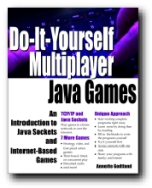Every Player
Every player must download and run the free Contract Whist program.
- Contract Whist is a game for Windows computers; it will not run on other devices.
One Player
One player (the host) must also download and run the Contract Whist Server program.
Download the free evaluation version of the Contract Whist Server program (limited functionality):
- Play with 2-8 players
- Play as many times as you want and as long as you want
- Make sure it works on your computer
- Decide if you like the game
- Limitation: does not shuffle the cards
- Learn more
$25 to Register to unlock full functionality:
Contract Whist
2-8 players. Play online with family and friends, over the internet or across a home network
Contract Whist is a trump and trick-taking card game, played in 13 hands. Each hand, each player bids on (makes a contract for) how many tricks they will try to take, based on their cards and the assigned trump suit for that hand. Each hand, the players receive one less card than the previous hand.
Start the Game
Before you can play the game, one player, the host, must start a game. Learn more about hosting this game.
After the host has started the server, each player should start the Contract Whist game on their own computer and enter the port, IP address, and player name exactly as instructed by the host.
Dealing the Cards
Players are arranged in the order in which they join the game. Cards will be deealt when the last person arrives.
Contract Whist is played in 13 hands: everyone is dealt 13 cards for the first hand, 12 for the next hand, 11 for the next, etc. until the last hand, when everyone gets one card.
The score card indicates the number of cards and the trump suit in each hand, and circles those values for the current hand.
The Contract
Each player in turn must bid (make a contract) for how many "tricks" they will try to take. The last person bidding is not allowed to bid a number that makes the total bids equal to the total tricks available. The score card shows everyone's bids in parentheses. The number of tricks bid over or under the total available is shown below all the bids.
Playing
The first player (person who bid first) plays a "lead" card by clicking on a card in his hand. The other players each take a turn playing a card.
- Players must follow the lead suit if they have the suit originally lead.
- If a player doesn't have any cards that follow the lead suit, they may choose to play any other suit in their hand, regardless of suits played by other players.
- A player may play a trump card ("trump the trick") if they cannot follow the lead suit, but do not have to trump the trick if they don't want to.
Whoever played the highest trump card, or highest card that follows the lead suit if no trump cards are played, takes the trick. The person who takes the trick leads the next round. The number on your tricks pile indicates how many tricks you've taken so far.
Scoring
At the end of a hand, if you win fewer tricks than you bid, you earn zero points for the hand. If you win more tricks than you bid, you earn one point for each trick you took. If you win the same number of tricks as you bid, you earn one point for each trick you took plus ten bonus points. The number of points you earned in the hand is shown on the score card with a "+" sign. Your total score for the game so far is shown on the next line.
Winner
The winner is the player with the highest score at the end of the game.
Tips
- You may take back a card you played if the next person hasn't played yet. Click on the card to take it back.
- Bidding too low is better than bidding too high. If you bid too low you will still earn points. If you bid too high, you will not earn any points.
- It is harder to take tricks if the hand was overbid and harder to keep from getting too many tricks if the hand is underbid. You should plan your strategy accordingly.
- Skill in this game is not in knowing what to bid (impossible because so many cards are out of play), but rather in trying to meet your bid as other players unexpectedly alternate between trying and not trying to take tricks.
- You can play this game without conversing with other players, but you may find it more enjoyable if you use some other form of audio or video communication while you play this game. For example, Zoom, Discord, or phone.
- If one person leaves the game early or loses their internet connection, the game will automatically end for everyone.
- If anyone leaves the game and others want to play again, the host must stop and restart the game server (click Stop then click Start) or close the server and start it back up again.
- If you rotate your computer screen and the score card appears over your cards, simply minimize the game then restore it. The game should then rebuild the window appropriately.
More Games
We have more games available for Windows computers.
Learn to Write Your Own Computer Games
Click the book image to find the book on Amazon.
Get quantity discounts with Free Shipping when you order 5 or more copies of any book directly from us.



